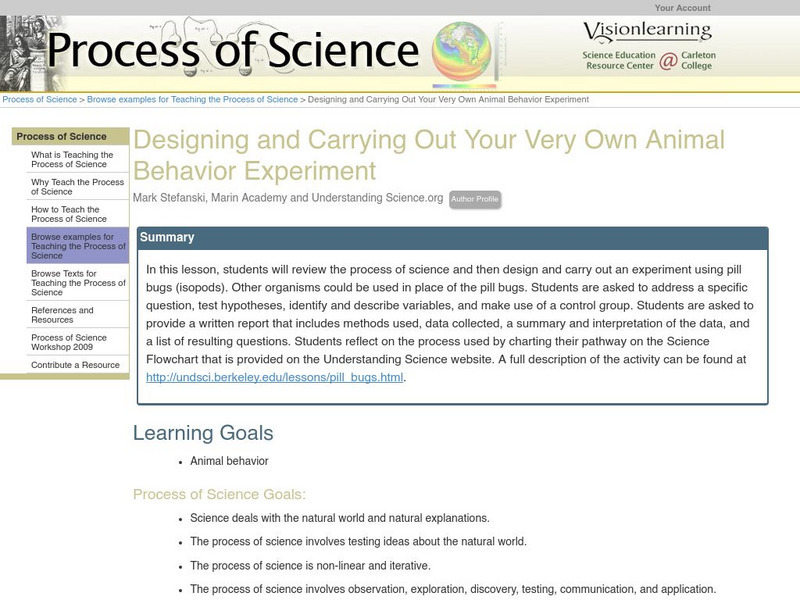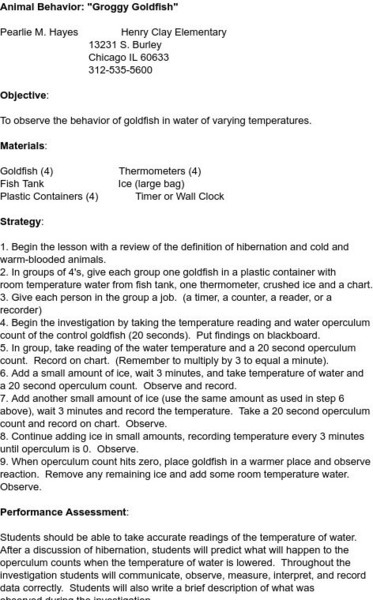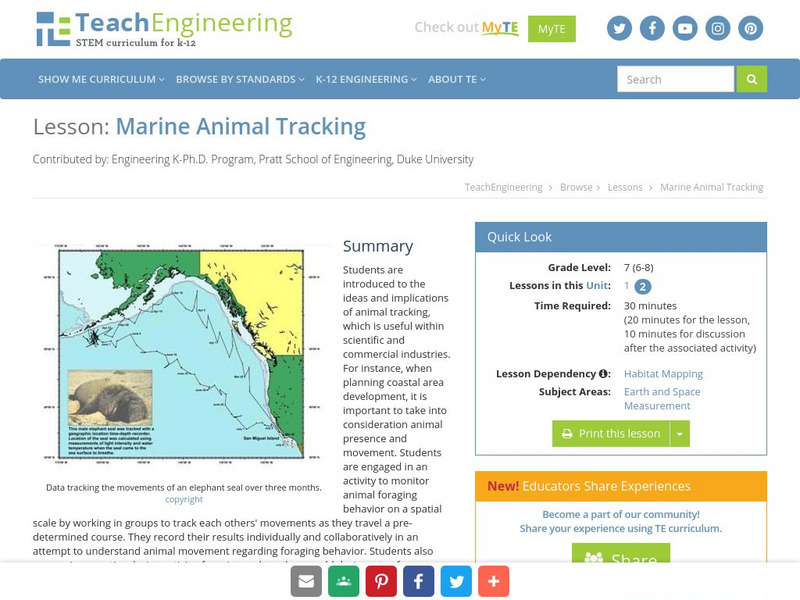Curated OER
Survival of the Fittest
Sixth graders create their own "never before seen" marine creatures and examine how not all creatures in the sea swim, not all have sharp teeth
Curated OER
Living with Manatees
Learners research the lives of manatees and how humans are contributing to their survival. They visit a variety of websites including a webcam.
Curated OER
The Power of Words
Students research the power of words and the necessary teaching of tolerance. In groups, they research a particular word given to them about a group in society. They trace the origin of the word and form a stance on how they view the...
Curated OER
Marine Animals on the Move
Young scholars complete a project based on collecting satellite data aimed at finding connections between organisms and the environment. They create a final project working with a partner to share with the class.
Curated OER
Cams
Students explore plate and barrel cams. They discuss the differences between the two cams. Students identify a base and prime circle and they draw a plate cam using the provided details.
Curated OER
Native Chili Planting
Students discover the process of planting chili. After comparing two types of seeds students plant and with the use of a digital camera, record the seed progress. When ready for transplant, students take young plants to a retirement...
Curated OER
Class Alphabet Book
Students are introduced to the Kid Pix software program and its templates. With a partner, they use the internet find a picture that starts with each letter of the alphabet. They practice saying and reading the words to their partner for...
Curated OER
Why Walk?
First graders listen to the book Yummers. They use the food pyramid to evaluate what Emily Pig ate during her walk and find out why her walk made her sick. They participate in a walking game.
Curated OER
Feedback and Flowcharts
Sixth graders explain what a negative feedback system is and they distinguish it from a positive feedback system. They describe examples of how negative feedback is used in both nature and technology. , Students define homeostasis, and...
Curated OER
Loggerhead Nest Management Program
Students identify the sea turtle management documentary and complete an activity for each slide. They plot the location of nests laid on the island they patrol and discuss their rationale for management decisions. Finally, students...
Curated OER
From Polliwog to Frog
Students examine how frogs change. In this life cycle lesson, students create a model to show how a frog changes throughout its life. Students will show the process of frog metamorphosis, from polliwog to adult frog.
ReadWriteThink
Read Write Think: Webcams in the Classroom: Animal Inquiry and Observation
Observe animal behavior patterns and their habitats using one of the many webcams broadcasting from zoos and aquariums around the United States and the world in this inquiry-based activity that focuses on observation logs, class...
Other
Ocean Tracks: Fact or Artifact? Interpreting Patterns in Ocean Tracks Data [Pdf]
Ever wonder where marine animals go? How fast they swim? How deep they dive? Electronic tagging has opened a new window into the world of the open ocean. Ocean Tracks gives you access to data collected by tags on real live migrating...
The Wonder of Science
The Wonder of Science: Ms Ls1 4: Animal Behaviors Plant Structures Reproduction
Work samples, phenomena, assessment templates, and videos that directly address standard MS-LS1-4: animal behaviors and plant structures- reproductive success.
Better Lesson
Better Lesson: Who's Your Animal Parent?
Do all animal babies look like their parents? Let's explore animal babies and find out the answer to this scientific question! Students will explore animal parents and animal babies through a matching game. Included in this instructional...
Science Education Resource Center at Carleton College
Serc: Designing and Carrying Out Your Very Own Animal Behavior Experiment
Students review the process of science and then use the scientific process to design and carry out an experiment using pill bugs.
Utah Education Network
Uen: Plant and Animal Changes
Second graders will learn about animal adaptation, hibernation, and migration.
PBS
Pbs Teachers: Scientific American: Chimps R Us: Speaking Chimp
Explore the vocabulary and vocalizations in chimpanzee communications and connect them to emotions. Develop and participate in a field study of animal behavior based on observations and interactions with dogs
Science and Mathematics Initiative for Learning Enhancement (SMILE)
Smile: Animal Behavior
Lesson plan that allows young scholars to investigate the effect of water temperature on fish behavior. Students measure, collect data, and interpret the results.
PBS
Pbs Learning Media: Animal Fitness Lesson Plan
In this instructional activity using commonly known animals such as a fox, dog and an inchworm, students enjoy learning about the movements of various animals. The teacher demonstrates how to move and be like that animal using various...
TeachEngineering
Teach Engineering: Marine Animal Tracking
This lesson plan engages students in an activity to monitor animal foraging behavior on a spatial scale. The students will break into groups and track each other's movements as they move through a pre-determined course. The results will...
ArtsNow
Arts Now Learning: Magic Rocks [Pdf]
In this lesson, students work in groups with each acting as a predator, prey, or family member in a particular habitat. They present their habitat performance to the class and students identify the habitat and animal relationships. Then,...
PBS
Pbs Teachers: Scientific American: Animal Einsteins: Thinking About Thinking
Investigate the work of ethologists - animal behaviorists - by observing an animal's behavior (alone and then in a group) for an extended period of time. Produce a scientific report of your observations.
PBS
Pbs Teachers: Scientific American: Animal Einsteins: Who Needs Words, Anyway?
Explore the theory that animals can learn to comprehend abstract concepts by observing to see if specific animal calls are associated with specific actions. Use scientific observation and record-keeping to collect and analyze data.
Other popular searches
- Animal Behavior Experiments
- Wild Animal Behavior
- Animal Behavior in Termites
- Animal Behavior of Fish
- Domestic Animal Behavior
- Animal Behavior Lesson Plans
- Biology Animal Behavior
- Animal Behavior Labs
- Animal Behavior Lab Betta
- Dance and Animal Behaviors
- Animal Behaviors Betta
- Innate Behavior Animal



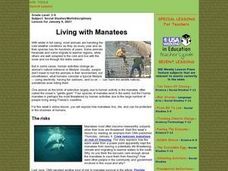


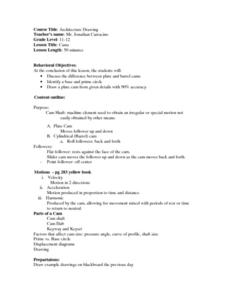
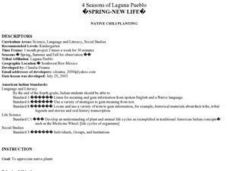






![Ocean Tracks: Fact or Artifact? Interpreting Patterns in Ocean Tracks Data [Pdf] Lesson Plan Ocean Tracks: Fact or Artifact? Interpreting Patterns in Ocean Tracks Data [Pdf] Lesson Plan](https://d15y2dacu3jp90.cloudfront.net/images/attachment_defaults/resource/large/FPO-knovation.png)

